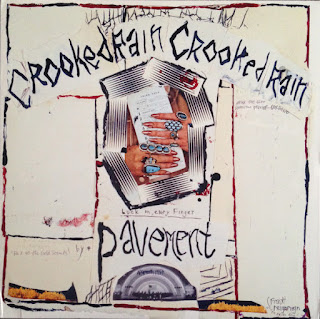David Bowie - Blackstar (Album Review)
David Bowie - Blackstar
(2016)
My copy: 2016 180g reissue by ISO and Columbia Records.
David Bowie was a trailblazer. Regardless of how you may feel about his music, there is no denying that Bowie’s brand of dramatic pop had a dominant grip on music culture and still has a deep influence to this day. Blackstar is Bowie’s final album, and comes with many lyrical references to the state of his health and to his eventual passing. Blackstar is also probably Bowie’s most experimental record, even though this is not really saying much given his mostly safe and radio-friendly catalog.
This record begins with the title track, a nearly ten minute blend of ominous crooning and joyous glam pop. “Blackstar” features lush arrangements of tense strings complimented by foreboding chants. The drums feel cheap here, but they do the job as the song switches from open flowing instrumentals to a tight beat. The vague dance elements in the first movement don’t really wow, and although rare, the EDM synth jabs are ill-suited. “Blackstar” eventually collapses into bright strings that come in to resurrect the song to sunny mid-tempo glam pop. The affected vocals are intriguing but become annoying upon repetition. There are funk elements in some of the guitar parts before “Blackstar” swells and becomes dark again, returning to the initial movement before finally dissipating.
“‘Tis A Pity She Was A Whore” is one of the best tracks instrumentally, as Bowie borrows hints of no wave with dueling discordant saxophone solos. Bowie’s vocals on track two are tired and sadly feel like little more than a distraction from the dense music; the lyrics are also awful. The third track, “Lazarus” is one of the best marriages of voice and instrumentation on the record as groovy bass tiptoes around sighing woodwinds and touches of distorted guitar. “Lazarus” sounds like a dimly lit back alley behind a club, clouded by cigarette smoke that clears to reveal an optimistic chorus.
Bowie seems to tackle a lot of darker influences on Blackstar to varying effects. Nick Cave can be heard in the earlier tracks while “Sue (Or In A Season Of Crime)” tries to take on Swans (specifically “Oxygen”) with a crazed drum beat and spastic bass line. The problem with Bowie tackling heavy music is that it still ultimately lacks teeth: it is clear he is out of his element and the result, while interesting, feels off. “Sue (Or In A Season Of Crime)” is still probably the best example of this new darker direction, as the expensive production is able to create chaotic ambiances that are quite enjoyable.
“Girl Loves Me” is an awful song, with embarrassing vocals and worse lyrics; there are neat instrumental ideas but it’s not enough to save the track. It is clear what Bowie is reaching for on songs like “Girl Loves Me” but the actual followthrough feels like a half-hearted attempt from an out of touch elder. ‘Dollar Days” is the most intimate track with tender lyrics that foreshadow Bowie’s passing. For major fans of the pop legend, the lyrics that reference Bowie’s own mortality are likely the most emotional and poetic.
The album closes with the boring “I Can’t Give Everything Away” that features a bittersweet progression held up by a cheaply distorted drum loop. The final track feels confused, as if it doesn’t know if it wants to end on a bright note or an emotional one (I guess bittersweet is the answer but it just feels lazy here).
Despite losing steam near the end, Blackstar is indeed a very solid release from an iconic voice. Bowie went out of his way to try something new and grand for what he surely knew was his final record; for this, he deserves respect.
It is still easy to get a hold of standard copies of this.




Comments
Post a Comment